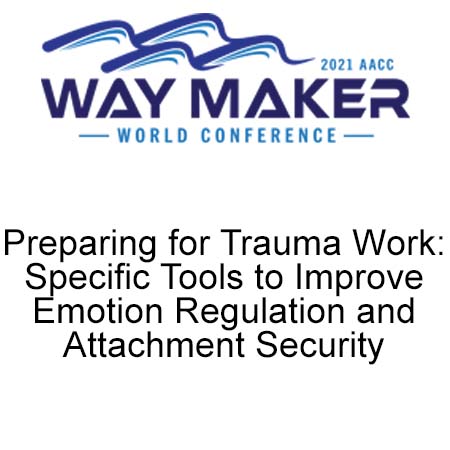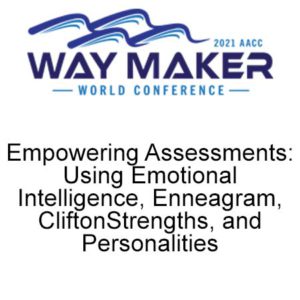Description
602: Preparing for Trauma Work: Specific Tools to Improve Emotion Regulation and Attachment Security
Lisa Compton, Ph.D.
Regent University
1000 Regent University Dr.
Virginia Beach, VA 23464
Anita Kuhnley, Ph.D.
Regent University
1000 Regent University Dr.
Virginia Beach, VA 23464
Summary
Attachment security and emotion regulation intersect on the pathway to well-being, particularly for survivors of interpersonal trauma. Earned-secure attachment can dramatically improve emotional regulation and offer a path to a safe-haven and secure base for clients (Reynolds et al., 2017). Attachment injuries may be repaired through the clinical relationship and internal working models revised to create an adaptive interpersonal narrative (Arriaga et al., 2017). This interactive workshop will increase counselor competency and confidence by unpacking clinical tools, including attachment assessment, grounding and stabilization work, and the integration of faith-based practices such as God-attachment interventions to decrease attachment-related avoidance (Knight et al., 2018). Participants will have the opportunity to apply newly developed decision trees to a complex case study and acquire a “toolkit” of interventions, including security priming reflection and other experiential activities. Even though attachment ruptures and trauma experiences may alter self-regulation and neurobiology, life can offer redemption through second chances to move toward a more secure attachment style and healthier overall functioning through healing relationships (Krupnik, 2019).
Learning Objectives
Participants will:
• Assess trauma and attachment-related anxiety and avoidance for clients with emotional dysregulation that serves as a guide for identifying effective treatment interventions
• Apply decision-making protocols for psychologists and licensed mental health professionals when working with trauma survivors to formulate treatment plans and provide structure to the therapeutic process
• Synthesize evidence-based, experiential, and faith-based interventions with complex cases to develop a toolkit to improve attachment security and promote healthy relationships





